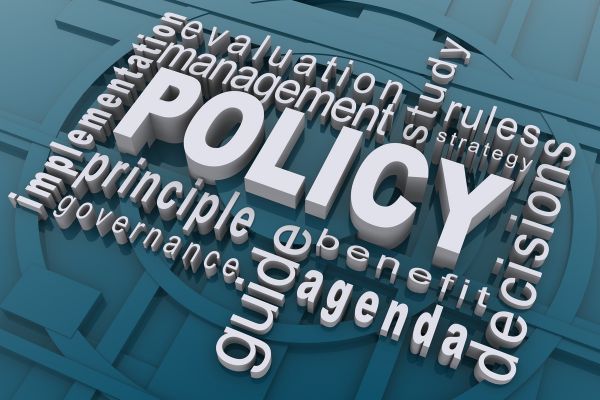Let’s be real — HR policies aren’t exactly the most exciting part of running a business. Most people think of them as a bunch of documents filled with legal jargon. But here’s the truth: having solid HR policies isn’t just about ticking compliance boxes. They’re what keep your team happy, safe, and aligned. Whether you’re a startup with five people or a growing company with fifty, there are certain HR policies every company needs to stay on track and build trust.
Why HR Policies Matter More Than You Think
Before diving into the specific HR policies every company needs, let’s talk about why they matter. These policies create structure. They protect both employers and employees from misunderstandings. Without them, even small issues — like time-off confusion or pay disputes — can spiral into big, messy problems.
Think of HR policies as the “house rules” for your company. They set expectations and create consistency. When everyone knows what’s acceptable, what’s not, and what happens if something goes wrong, it eliminates unnecessary drama. Plus, clear policies help your business comply with labor laws — a big deal if you want to avoid fines or lawsuits.
The Foundation: Equal Employment and Anti-Discrimination
One of the first HR policies every company needs is an Equal Employment Opportunity (EEO) policy. This policy ensures fairness during hiring, promotions, and daily operations. It states that the company doesn’t discriminate based on race, gender, age, religion, disability, or any other protected trait.
You know that saying, “treat people how you want to be treated”? That’s what this is all about — creating a respectful, inclusive workplace where everyone feels valued. It also builds your reputation as an ethical employer, which is a massive win in today’s competitive job market.
Attendance and Leave Policy
Time is money — literally. That’s why an attendance and leave policy is one of the most important HR policies every company needs. This policy explains how time off works: vacation days, sick leave, public holidays, and what happens if someone’s late or absent.
The thing is, people value flexibility. But without guidelines, it can turn into chaos. A good leave policy keeps things fair and transparent. It also shows employees that their personal time is respected. And when people feel trusted, they’re more productive when they’re actually at work.
Workplace Safety Policy
No one wants to think about accidents or emergencies, but safety policies are non-negotiable. Whether you’re in an office or a warehouse, having a workplace safety policy is essential. It covers what to do in case of fire, injury, or health emergencies and explains how the company maintains a safe environment.
Here’s the thing: employees who feel safe perform better. When people know their company genuinely cares about their well-being, it boosts morale and loyalty. Plus, it’s a legal must — safety regulations are strict, and compliance helps you avoid hefty penalties.
Code of Conduct Policy
Every company has its own culture, right? Well, the code of conduct puts that culture into words. It outlines how employees are expected to behave — things like respect, integrity, professionalism, and accountability.
This is one of those HR policies every company needs to avoid conflicts or awkward “he said, she said” moments. It’s also where you set boundaries for things like dress code, communication, and even the use of company property. Essentially, it helps people understand what’s cool and what’s not.
Compensation and Benefits Policy
Let’s be honest — everyone works for a paycheck (and maybe a few perks). A clear compensation and benefits policy ensures employees know how their salaries, bonuses, and incentives work. It also covers health benefits, insurance, retirement plans, and any other extras your company offers.
The goal here is transparency. When pay and benefits are clearly defined, it removes guesswork and resentment. Employees appreciate honesty, especially when it comes to money.
Remote Work and Flexible Hours Policy
Since the pandemic, remote work has gone from “rare perk” to “standard expectation.” So, if your company offers any kind of flexibility, this is definitely one of the HR policies every company needs.
A remote work policy covers communication expectations, work hours, security guidelines, and how performance is tracked outside the office. It helps prevent burnout, sets boundaries, and ensures accountability. Let’s be real — it also keeps everyone from turning their “work from home” setup into “work from bed.”
Data Protection and Privacy Policy
We live in a digital world, and data security is everything. Employees and clients trust companies with sensitive information. A data protection and privacy policy ensures that information is handled safely and legally.
This includes employee data, customer records, and even how your team uses devices and email. It’s one of the most underrated HR policies every company needs — until something goes wrong. Protecting privacy builds trust and shows your business takes security seriously.
Performance Evaluation Policy
Ever had a job where you had no idea how you were doing? Frustrating, right? That’s why having a performance evaluation policy is so important. It outlines how employees will be reviewed, how feedback is shared, and how promotions or raises are decided.
The thing is, people want growth. They want to know where they stand and how to improve. This policy ensures everyone’s judged by the same standards — no favoritism, no confusion. Just fairness and opportunity.
Disciplinary and Grievance Policy
No matter how great your team is, conflicts happen. And when they do, you need a clear process to handle them. The disciplinary and grievance policy explains how to report issues, how investigations work, and what steps follow if someone violates company rules.
This isn’t about punishment — it’s about fairness. It shows that your company listens, takes problems seriously, and acts professionally. It also protects both the business and employees from unfair treatment or false accusations.
Termination and Exit Policy
Here’s the uncomfortable part: people leave. Sometimes voluntarily, sometimes not. Either way, having a termination and exit policy keeps things civil and compliant. It explains notice periods, severance pay, final paychecks, and the process for returning company property.
Handled right, even exits can strengthen your reputation. Employees who leave on good terms often become brand advocates — or even return later.
Wrapping It Up
So, there you have it — the HR policies every company needs to function smoothly and stay compliant. From equal opportunity to exit procedures, each one serves a specific purpose in building a healthy workplace.
The thing is, policies don’t have to be cold, corporate documents. They can reflect your company’s values and culture. The best HR policies are clear, human, and designed with people in mind. Because at the end of the day, that’s what HR is really about — people.
If your business doesn’t have these policies yet, now’s the time to start. It’s not just about compliance — it’s about creating a workplace where everyone knows the rules, feels respected, and can do their best work.
And that, honestly, is what makes any company worth working for.



